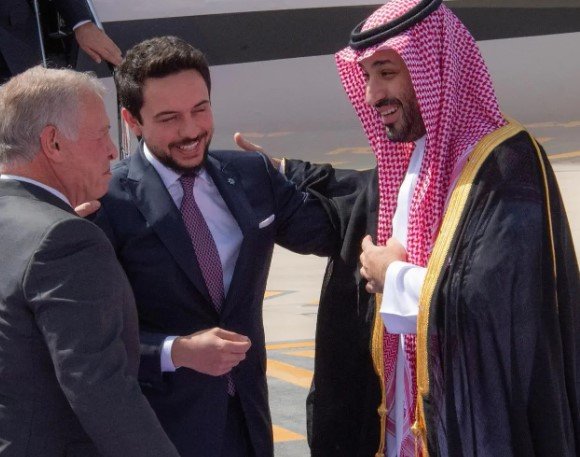Jordan’s King Abdullah II left the country Monday, setting off on a high-profile visit to Saudi Arabia to meet with Crown Prince Mohammed bin Salman, Prime Minister of the Kingdom. The trip comes at a tense moment in Middle East affairs, with both leaders expected to discuss pressing regional issues.
A Royal Delegation on a Mission
Accompanied by Crown Prince Hussein bin Abdullah II, King Abdullah’s visit is seen as a pivotal diplomatic engagement. With regional dynamics shifting rapidly, the Jordanian monarch’s talks with the Saudi Crown Prince are being closely watched by governments and analysts alike.
Meanwhile, back in Amman, His Royal Highness Prince Faisal bin Hussein took the constitutional oath as Deputy to His Majesty the King in a ceremony attended by the Cabinet. This move reflects the continuity and stability within Jordan’s monarchy during a critical period.
Timing and Stakes
The visit to Saudi Arabia occurs amid heightened tensions over the Gaza conflict and evolving discussions around the West Bank’s future. Jordan shares a long border with the Palestinian territories and maintains a unique custodial role over Islamic and Christian holy sites in Jerusalem — concerns central to the kingdom’s foreign policy.
Observers believe that King Abdullah’s talks with Crown Prince Mohammed bin Salman will focus on these issues, as well as broader regional security and humanitarian efforts.
Diplomatic Significance
Saudi Arabia, under Crown Prince Mohammed bin Salman, has been increasing its diplomatic initiatives in the region, balancing traditional alliances with efforts to expand its influence. Jordan, with its historic ties and strategic position, remains a key partner.

The dialogue between the two leaders could shape Arab responses to the ongoing crisis and may influence international diplomatic efforts seeking de-escalation.
Continuity at Home
Prince Faisal bin Hussein’s oath-taking as Deputy to the King reassures Jordanians and foreign partners alike that the monarchy’s governance remains steady despite the King’s absence.
Political analysts say this succession step strengthens the monarchy’s institutional framework and signals readiness to handle internal and external challenges.
